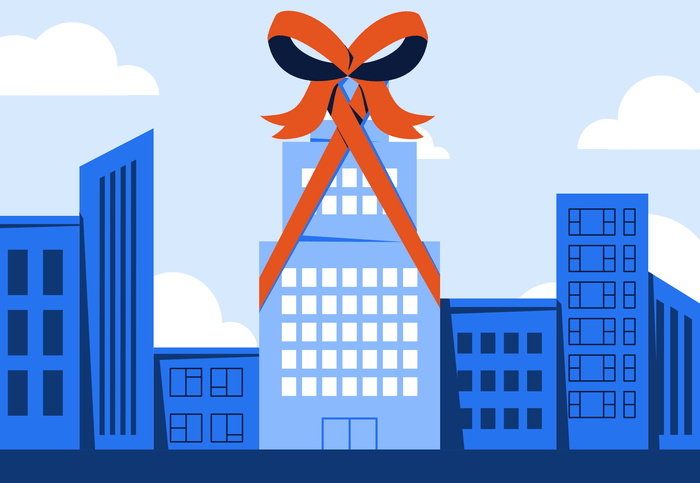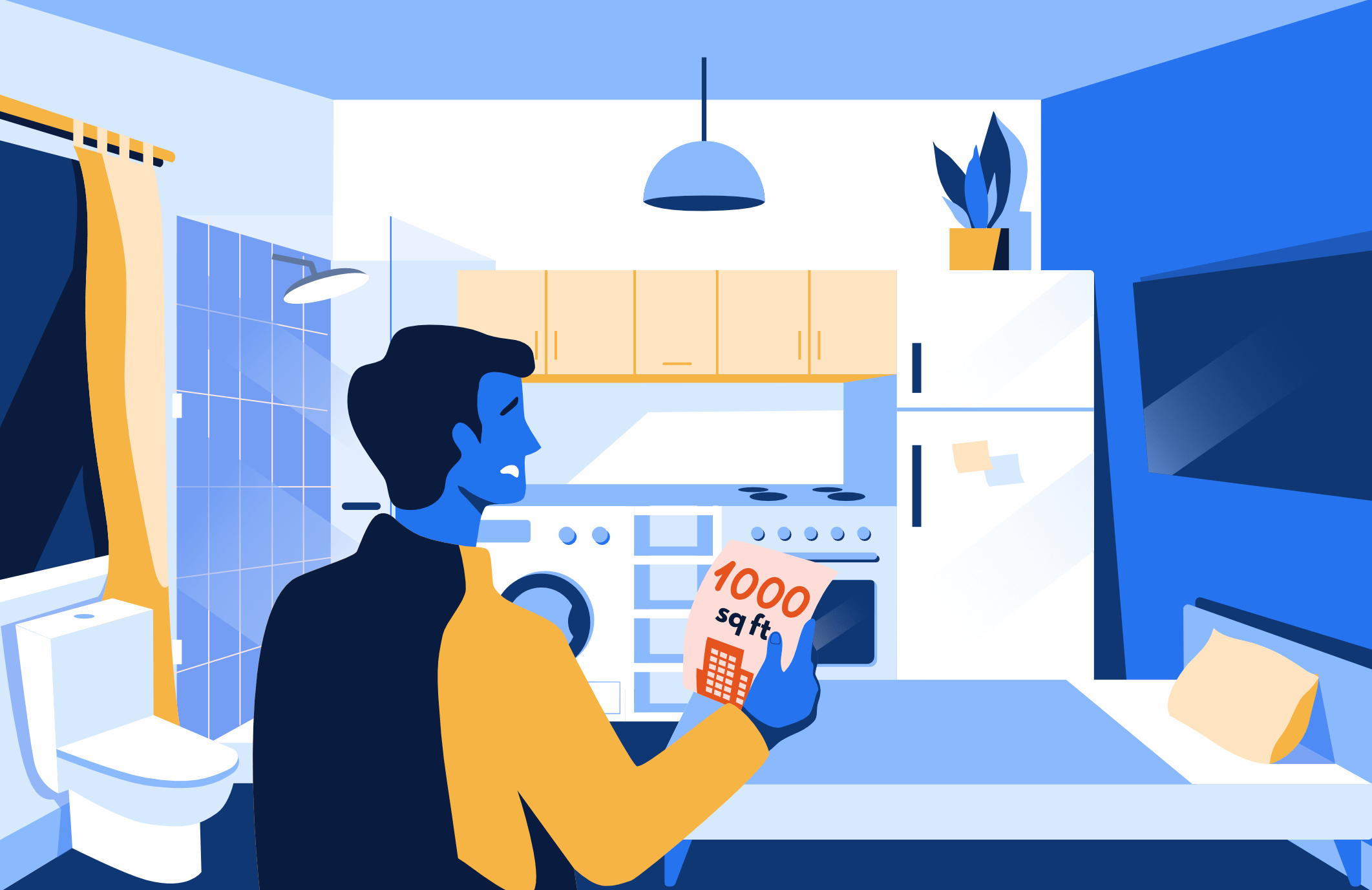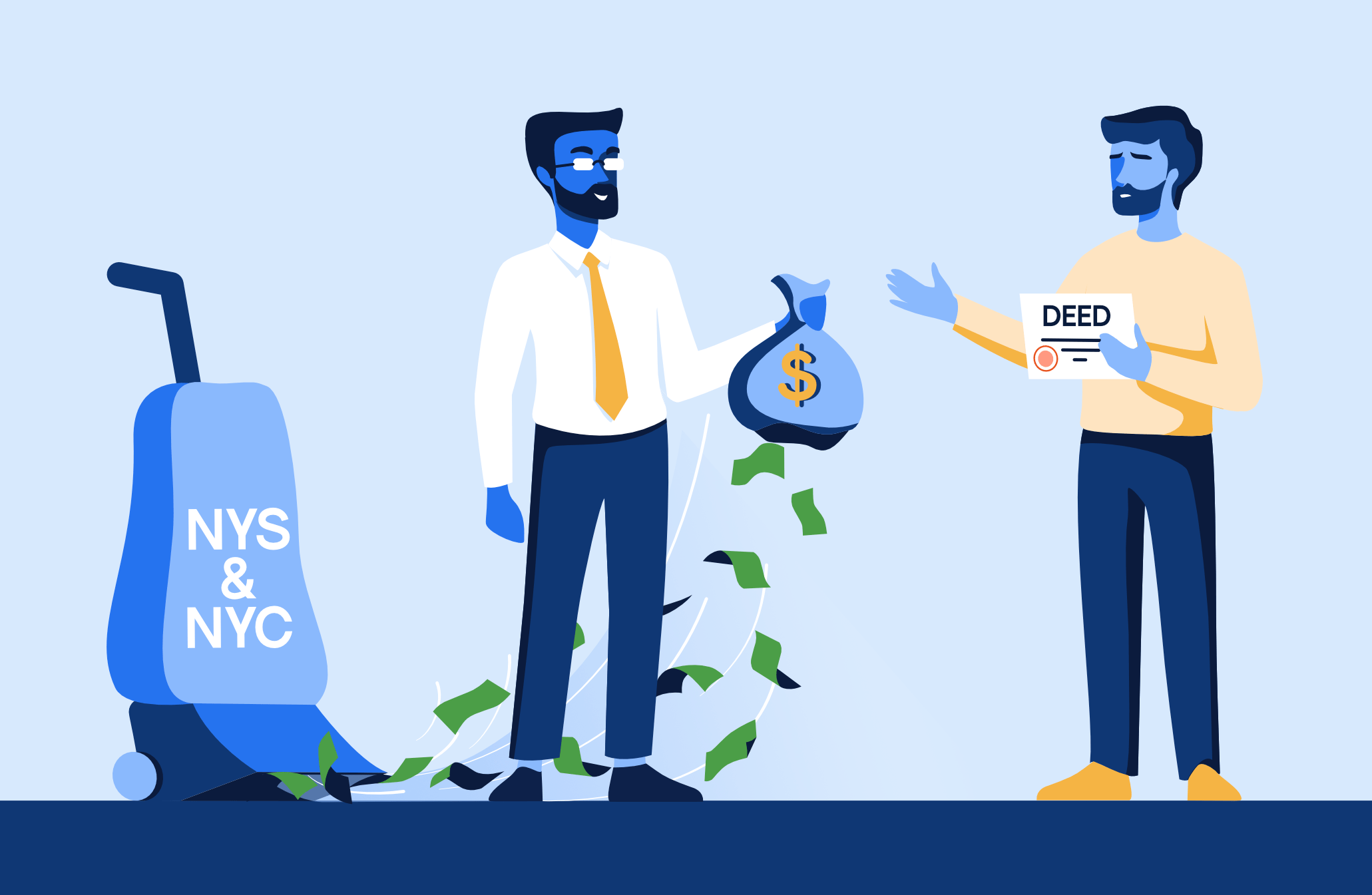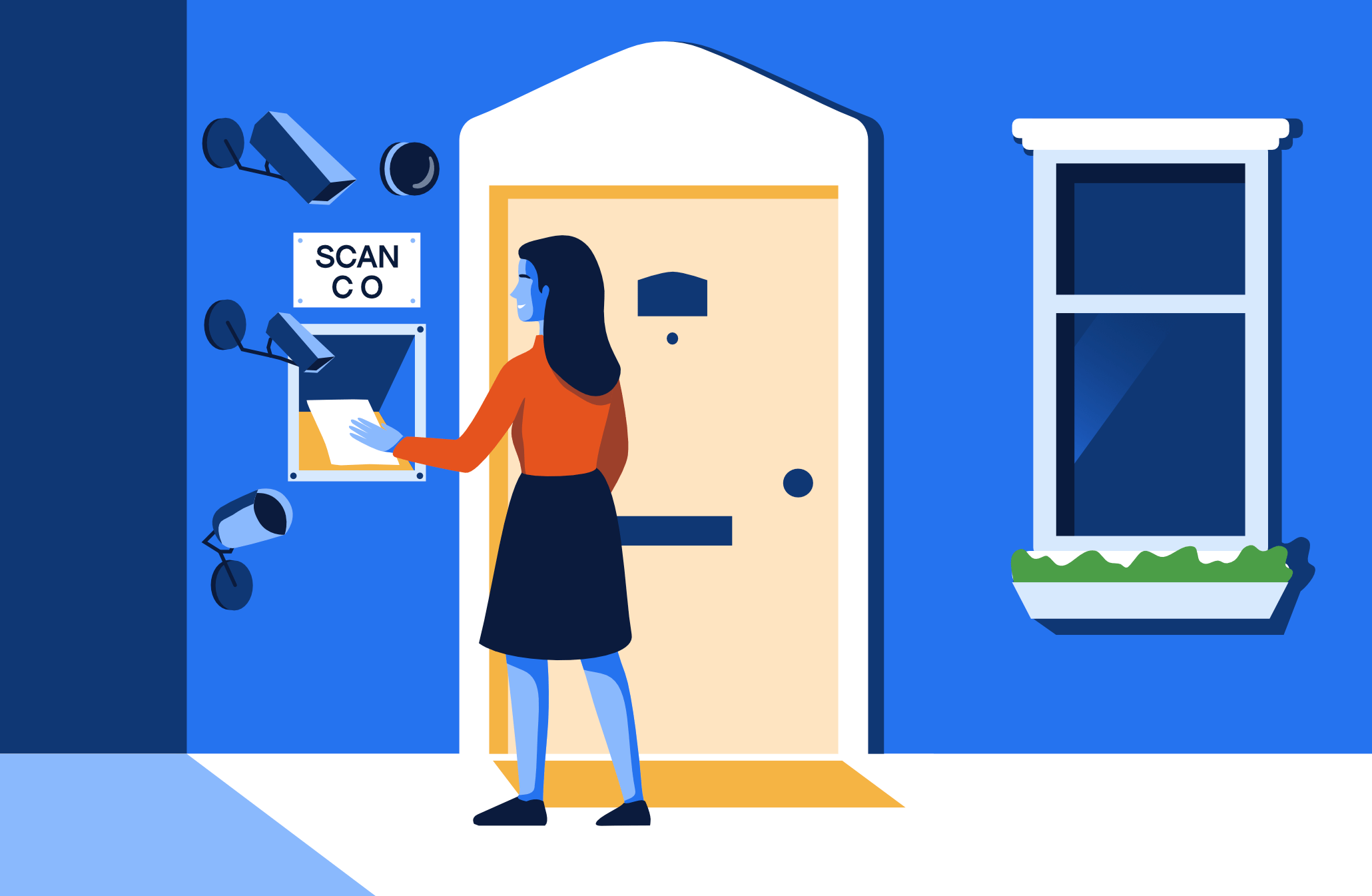New development apartments can be extremely tantalizing for buyers. After all, everything is brand new and they often include luxury amenities you can’t find in older buildings.
But buying new development comes with critical differences and increased costs compared to a normal resale transaction. Welcome to your one-stop shop for navigating the NYC new development market!
What is new development in NYC?
The definition of new development might seem like a simple question but NYC real estate always finds a way to complicate things!
If there was a vacant lot and now there’s a building, that’s an obvious example of new development. But what about a townhouse that was gutted? Is that new development?
The NYC Department of Buildings (DOB) has very specific rules about when an "alteration" becomes a new building. For example, the DOB will look at how much floor area is added. If it was increased by more than 110%, it's a new building.
Let's apply that to the townhouse example above. If they truly gutted it - they removed all the floors and just the exterior walls remained - it would be a new development. On the other hand, a beautiful renovation that maintained the floors would be an alteration.
One quick aside - "sponsor" and "developer" are used interchangeably around new development. They both represent the company which owns and built the project. We are going to use "sponsor" for this article.
Why does it matter if a property is new development?
Whether a project is an alteration or new development has big time implications for both sponsors.
If at all possible, a sponsor would prefer an alteration. Obviously if they're developing a vacant lot, that isn't possible but sprucing up an existing structure has big advantages. Once a project tips into new development, the sponsor need to comply with all current building codes. Alterations, on the other hand, get grandfathered in.
The distinction is less important for buyers. They're just buying the finished product and aren't concerned with how it got there. However there are important differences for buyers versus a resale transaction.

What to know before looking at new development in NYC?
Before checking out properties, there are a couple things you should know about new development -
Closing Costs - Closing costs on new development can be significantly higher than a resale transaction. We get into the details below but for now, just be aware closing costs are about 2% higher, primarily because of transfer taxes.
Agent Representation - If you plan on using a buyer’s agent (and you should), make sure they reach out to the listing agent on your behalf. New development projects have their own individual agreements about paying commissions and it can be difficult to bring in an agent after a few independent viewings.
Timeline - If you're buying a normal resale apartment, a good rule of thumb is it'll take 2-3 months to close. For new development though, that can be pretty much anything. Projects start selling long before the building is complete. In fact, listings often go up before construction has even started! Buyers often "buy off the floor plan" with a rough sense of what the sponsor will ultimately deliver and when. Even buying as construction is underway up exposes you to unforeseen construction or certificate of occupancy delays. That being said, if the building is complete, you can usually close quickly as there is no board approval process.
Financing - Getting a mortgage on a new development can be tricky. Many banks require a new building to be at least 51% sold before they'll lend within it. For this reason, there is usually a "preferred lender" for the building. The preferred lender is familiar with the building and willing to make loans before that 51% threshold is reached. While you are free to use whichever lender you want, often the sponsor will require you to apply to the preferred lender, especially early in the sales process.
How is buying new development different from a resale?
Now that you’ve got a good sense for the costs and timeline associated with new development and your agent is at your side, what else should you know?
If it is early in the construction process, you won’t be visiting the actual building. New developments usually have an off-site sales office. There you will be able to see some of the materials and fixtures that will be used. Depending on the building, sometimes there will even be life size examples of the kitchen and other rooms. We recently visited an impressive sales office with a miniature version of the building where they lit up the specific apartment you would be buying!
As construction wraps up though, your visit will be no different than a resale. You’ll be able to walk the specific apartment under consideration.
You’ll also usually discover there are more apartments available than what’s listed online. This is almost always the case for larger buildings. There’s no point in marketing twenty identical one bedrooms at the same time. At the sales office, you can learn what other units may be available.
New development purchases also have an extra walkthrough. Before the normal walkthrough (the same one you’d have on a resale), you’ll have a “punch list” walkthrough. It’s here where you’ll note all of the apartment’s defects. At the normal walkthrough, you’ll make sure the sponsor made the requested repairs.
Questions to ask when making an offer on new development
If you’re considering making an offer on new development, there are a couple questions you should ask (in addition to those you would on a resale).
Perhaps most importantly, you’re going to want to know when deliveries will start and what that means for the unit in which you’re interested. This is especially important (although unreliable) when construction has just begun.
For most new development apartments, you can expect closing costs to include transfer taxes, the sponsor’s attorney and working capital contribution. However there may be other smaller costs that can add up. Every dollar of closing costs increases the amount of your offer so you want to make sure you know what you’re getting yourself into.
And while this is getting into the weeds, it isn’t a bad idea to ask how the unit’s square footage is being calculated. This will be detailed in the offering plan. While condo square footage is much more reliable than co-op square footage, different approaches to the calculation can result in very different results. For example, common areas can be allocated to individual units. It’s even okay to measure to the outside of the walls if it is disclosed!
This is one of the many reasons why it’s always ideal to compare pricing within a building. This allows you to make an apples to apples cost per square foot comparison.
What is an offering plan?
An offering plan provide details about the physical characteristics of the building and apartment that will be delivered to the buyer. It is a legal document and must comply with the Attorney General’s regulations. Your attorney will review the offering plan before you enter a purchase contract.
Apartment items that are typically specified in the offering plan include -
- Appliances
- HVAC
- Windows
- Flooring
- Wiring
- Plumbing
There will also be details about the building such as its facade, roof, elevators and the specifications of the shared amenities. Even the number of trees to be planted outside!
You can think of the offering plan as a promise from the sponsor and it's for your protection. For example, if a landscaped roof deck was in the offering plan, the sponsor can’t decide they’re cutting it because it’s getting too expensive.
New development closing costs
Closing costs on NYC new development can easily hit 5% of the purchase price. This is far more than a resale transaction where they usually top out at 3%.
The incremental new development closing costs are the transfer taxes, sponsor's attorney, working capital contribution, superintendent's apartment and a bunch of other miscellaneous expenses.
The most significant of these by far is the transfer taxes at 1.825% of the purchase price.
On a resale transaction, the seller pays the transfer taxes and for their attorney. The other costs are no longer relevant since the building has a working capital fund and the super has an apartment.
We’re not sure how sponsors were able to push these costs to buyers but regardless, it's the norm.
New development closing costs are negotiable though. Most sponsors will be indifferent between a higher price where they pay the transfer taxes and a lower price where the buyer pays. However when you’re looking at new development, you should be aware that the real asking price is about 2% higher because of these costs.
How to save on new development in NYC
If you’re looking for a way to reduce the closing costs that come with new development in NYC, make sure to check out the commission rebates offered by Yoreevo.
Along with an agent to help navigate everything we’ve discussed, you’ll receive part of the commission that is offered by the listing broker. On most new development purchases, that will be 2% of the purchase price! Say goodbye to those transfer taxes!
Want to talk to someone instead of reading? Give us a call or send us a message and we’ll explain how it works!


